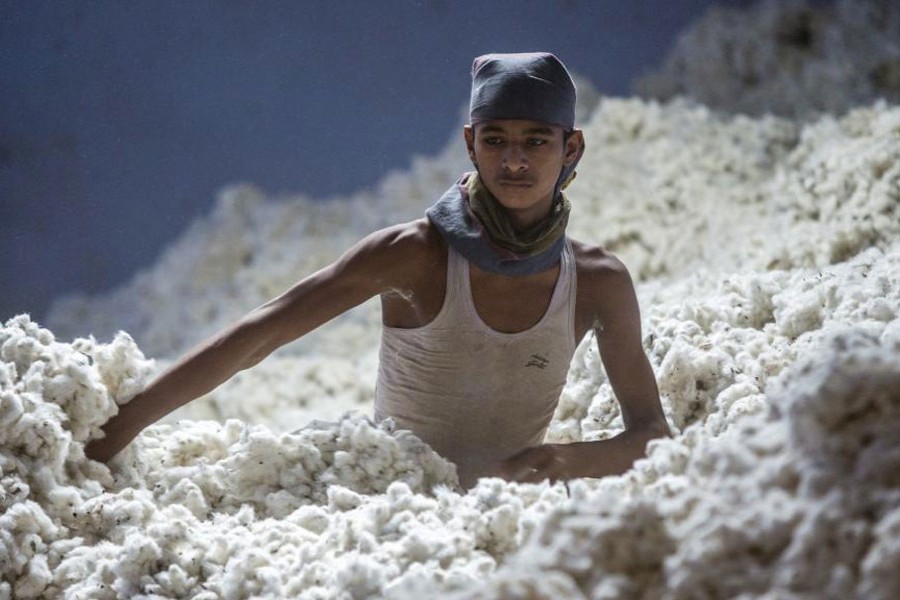A policy think-tank sees surging cotton import into Bangladesh as "suspicious" as it may be a means of siphoning off money.
The Centre for Policy Dialogue (CPD) came up Saturday with such scepticism and cited a mismatch between a 75 per cent surge in cotton imports in four months and an average 7.0 per cent growth in output of readymade garments.
Dr Mustafizur Rahman, a distinguished fellow at the CPD, said this rising trend cannot be explained by available economic variables.
He argued that if there were huge investments in textiles and its backward linkages that could be explained--but it didn't happen.
"We did not see any big rise in investment in textiles and its allied industries to substantiate the rise in cotton import," he told reporters at a media conference in Dhaka, where a CPD report on the country's economic situation was presented.
The economist further said if there were fall in imports of yarns and fabrics during the period that could also justify increased cotton imports.
Even, if prices of cotton on the international market were up that also could be one argument for this surge in the import of cotton.
"Cotton prices in the international market remained stable," the CPD said.
Dr Rahman said none of the economic variables is sufficient to substantiate this mammoth import in four months of this fiscal year.
The policy analyst said there are many international studies about capital flight from Bangladesh, to the tune of around 8.0 billion to 9.0 billion US dollars a year.
He also said those who siphon off money from the country usually target trade mispricing -- and this happens in almost 80 per cent cases.
"They do over-invoicing in imports and under-invoicing in exports and these are safe channels for siphoning off money from the country," he mentioned.
He said the import and export items having zero-rated tariffs are ideal for such unethical practice-money laundering. He however urged the central bank of Bangladesh and the National Board of Revenue to conduct a thorough study on it and take stringent actions accordingly.
The CPD said the raw-cotton imports had been seen on the up since November 2016.
It said the country may face additional burden of import payments in the second half of this fiscal year as the prices of crude oils evinced signs of rise.
The think-tank said rice imports cost US$623 million mainly because of production shortage owing to the floods.
And rice import is likely to continue because of higher domestic prices and lower public stock, the CPD forecast.


